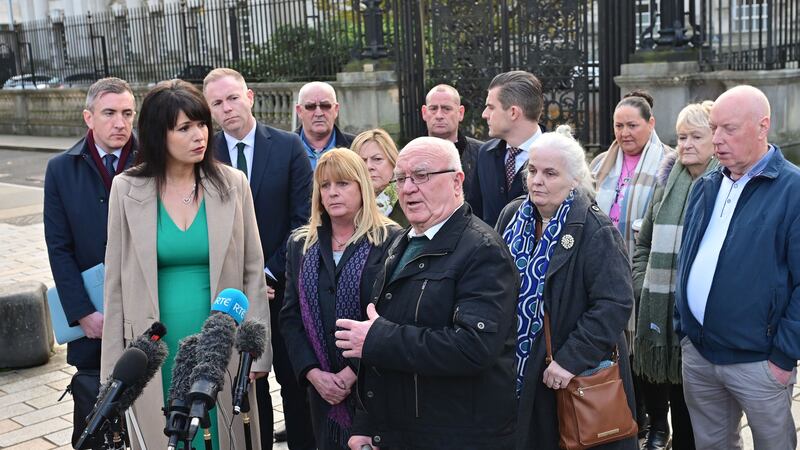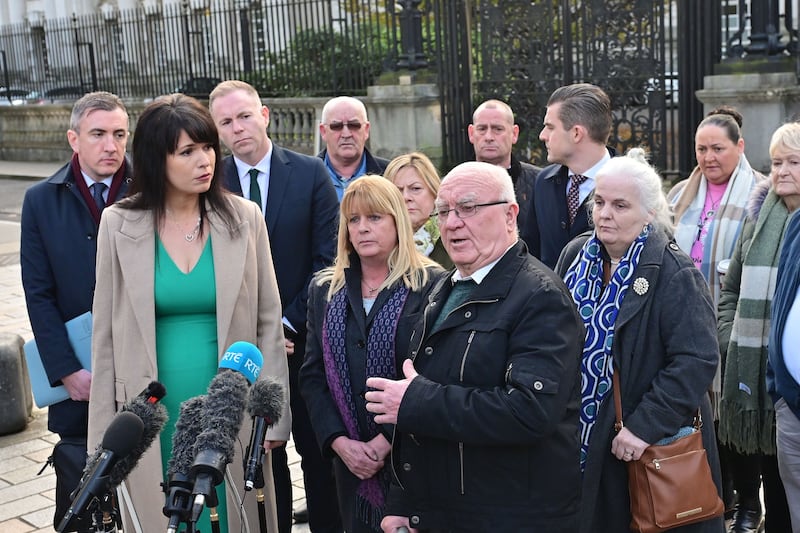The British government's controversial new legacy laws are aimed at achieving a “reset” to the foundations of the Good Friday Agreement, the High Court heard on Friday.
Counsel for the UK government argued that the legislation was attempting to achieve reconciliation while preserving victims’ rights, rather than being all about protecting security force veterans from prosecution.
Tony McGleenan KC also claimed a series of challenges involved an unprecedented attempt to block a sovereign act of parliament.
"This court is being invited to engage in some of the most intrusive relief that it is possible to achieve in our legal system," he said.
The Northern Ireland Troubles (Legacy and Reconciliation) Act offers a conditional amnesty to those accused of crimes during more than 30 years of sectarian violence.
It will also end future civil claims for compensation and inquests into conflict-related deaths not completed before the cut-off date of May 2024.
Victims organisations, political parties and the Irish government are all fiercely opposed to the new law.
A series of challenges to the act have been brought by some of those who either lost loved ones or were injured in the Troubles.
They claim the legislation is unconstitutional and breaches Articles 2 and 3 of the European Convention on Human Rights.
But on day four of proceedings, Mr McGleenan insisted that little evidence was produced to back allegations that the intention was to shield former soldiers or police officers.
"This legislation seeks to strike a balance between multiple public interests, it fundamentally seeks to give effect to the terms of the Belfast Good Friday Agreement," he said.
Referring to the 1998 accord, counsel stressed that it contained no references to retribution, prosecution or compensation.
Read more: Irish government challenge to UK legacy laws would not derail relations – Gove
"Despite the aspirations of the Agreement, we have had a corpus of litigation in this jurisdiction for the last 20 years driven by those concepts,” Mr McGleenan said.
"In broad terms, what the act seeks to do is reset to the founding concepts of the Belfast Agreement.
"Preserve the rights of victims of course, but against the touchstone concept of reconciliation.
"The act itself is faithful to the Agreement. Indeed one might say it is the logical outworking of that Agreement given what has passed in the 25 years since it was signed.”
Earlier in the case lawyers for some of the victims claimed the opposition would enable "crowing and triumphal" killers to glorify their crimes without remorse and still achieve immunity from prosecution.
But according to Mr McGleenan there were parallels with those convicted of "heinous" offences who benefited from the early release provisions 25 years ago.
"In 1998 prisoners were able to walk out through the turnstiles of the Maze to liberty if they met the conditions, and they could do so if they wished in exactly the manner highlighted," he said.
"These were individuals who engaged in activities that extinguished the lives of others, engaging Article 2, brutalised and tortured, engaging Article 3, all of the things complained about now were addressed by this Act of Parliament in 1998."
Disputing the validity of the legal challenges, Mr McGleenan argued: "This court is being invited to dis-apply an Act of a sovereign parliament on grounds that have never before produced that result."
The case continues.







